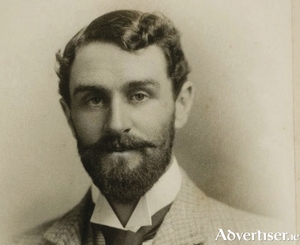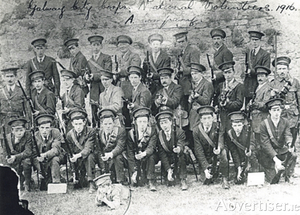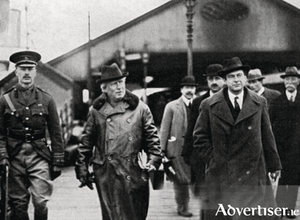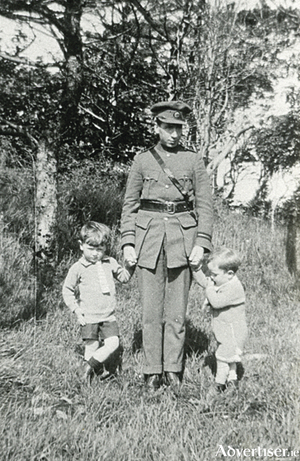Search Results for 'Roger Casement'
27 results found.
‘They all died well, but MacDonagh died like a prince.’
Padraic Pearse, the self-identified President of the Provisional Government, and Commandant-General of the Army of the Irish Republic was rushed to the gallows, or in this case to the grim stonebreakers yard at Kilmainham jail.
Roger Casement, human rights, and 1916

ROGER CASEMENT was a human rights and progressive anti-colonial campaigner, also involved in the 1916 Rising, and will be the subject of a public talk in Galway next week.
The Galway Volunteers

Just a few weeks after the Irish Volunteers were formed in Dublin, a meeting was set up in the Town Hall on December 12th, 1913 to establish a Volunteer force in Galway. There was a lot of excitement and expectation as Eoin McNeill, Roger Casement and Pádraic Pearse told the packed hall that their main objective was to win Home Rule but the movement was also formed to protect them from the Ulster Volunteers. The meeting, which was chaired by George Nicholls, was a major success and some 600 men joined up that evening.
A Terrible Beauty is Born – centenary exhibition in Athlone Library
From now until March 12, the Aidan Heavey Public Library in Athlone is showcasing an exhibition borrowing its title from the famous line by W.B. Yeats: A Terrible Beauty is Born. This will be the first of two library exhibitions focusing on the 1916 Rising.
‘What the hell is going on?’

‘What the hell is going on?’ appears to be what the British Prime Minister Herbert H Asquith, is thinking as he disembarks at Dun Laoghaire on May 12 1916, almost three weeks after the Easter Rising. Following six days of intensive fighting, Dublin city centre was unrecogniseable. Practically all its main buildings were destroyed either by artillery fire or burnt out. The list of casualities was horrendous. One hundred and sixteen army dead, 368 wounded, and nine missing. Sixteen policemen died, and 29 wounded. And this at a time when Britain was fighting an appalling war in France, which seemed unending, and its mounting causalities were not only threatening his government’s survival, but had filled the British people with dread and alarm.
George Nicholls, Rising organiser and volunteer
George Nicholls was a young solicitor who worked in G.C. Conroy’s office in Francis Street. In 1912, he set up a pipe band known as “Cumann Píobairí naGaillimhe”, the only band with an Irish language name to play at O’Donovan Rossa’s funeral to which they travelled in the company of Padraic Pearse.
Mícheál Ó Droighneáin, 1916 veteran

Mícheál Ó Droighneáin was born in Spiddal. He left school when he was 14 and got a job in McCambridge’s for 6d a week. Lady Killanin convinced him to go back to school and he became a monitor, went on to training college in Dublin, and it was there he became a Nationalist. “I became a member of the IRB towards the end of 1910 when I was teaching in Dublin [from August 1910 to January 1913]. Then I came to my native place, teaching in Spiddal for one year and then coming to Furbo.”

